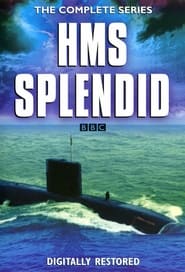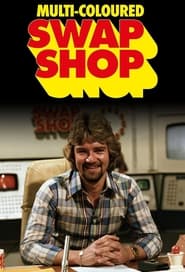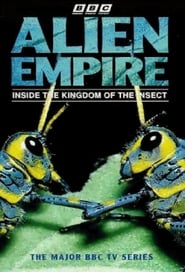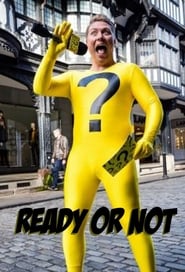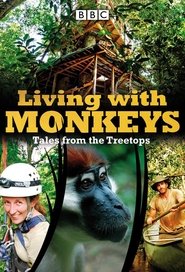Bbc One TV Series - Page 112
-
Breakfast News
0000
Breakfast News
0000
Breakfast News was a breakfast news show which first aired on BBC1 on 2 October 1989. The programme was previously known as Breakfast Time. It was planned to launch on 4 September 1989 and again on the 18 September but was held back due to technical issues with its new studio The programme went through three main visual changes. The initial look lasted from launch in 4 September 1989 to 12 April 1993. The 13 April 1993 revamp saw the programme presented from the same set as the One, Six and Nine O'Clock News bulletins. A further and final revamp took place in June 1997 when 'BBC' was shorn from its title, and on-screen it became known as simply Breakfast News. It was during this final period that the tone began to shift, with the return of a sofa set, alongside more features, and more interaction between the presenting team. The final edition of Breakfast News aired on 15 September 2000, and on 2 October 2000 it relaunched as BBC Breakfast. -
Fame Is the Spur
0000
star 5Fame is the Spur is a British television series which first aired on the BBC in 1982. It was based on the novel Fame is the Spur by Howard Spring. It depicts a socialist politician who betrays his early beliefs as he grows older, and was believed to be based upon the Labour Prime Minister Ramsay MacDonald. It had previously been adapted as a film Fame is the Spur by the Boulting Brothers in 1947. -
The Armstrongs
2006
star 8The Armstrongs is a British television drama/documentary series broadcast on the BBC in the UK. The Armstrongs is an access-all-areas insight into the unorthodox and sometimes ruthless business antics that are par for the course at "U-Fit", Coventry's third-biggest double glazing company. The show is narrated by actor Bill Nighy. This was the second TV outing for the Armstrongs. The first was in a one-off documentary in 2003 called "The Office Christmas Party", which showed the preparations for U-Fit's Christmas party. There is some discussion as to whether it is a true fly-on-the wall documentary, a fictional comedy with an elaborately constructed presence on the internet, or a mixture of the two. Note that U-Fit the company appears in the online Yellow Pages. -
Open Water
0000
Open Water
0000
Marcus works in retail while trying to develop a career as a photographer. Effie is studying dance at university in Dublin. From the moment they meet, they feel an immediate, undeniable connection. But, as Marcus soon learns, Effie is in a relationship with Marcus' friend Samuel. It's a boundary that Marcus is unwilling to cross. A shared project, photographing and documenting Black creatives in London, draws them into each other's orbit, but can their burgeoning friendship resist the pull of desire? -
Spook Squad
0000
Spook Squad
0000
Spook Squad is a British children's television gameshow created by BBC Scotland. It ran on CBBC's section BBC1 and BBC2 from 6 January 2004, to 30 March 2004. The gameshow featured three children contestants entering a haunted castle in Scotland to assist Professor MacAbre in hunting ghosts before they reach their "death day" and gain superpowers. The show was filmed in Fyvie Castle. -
Nairn's Journeys
1971
Nairn's Journeys
1971
Writer and journalist Ian Nairn presents a series of travels, examining architecture and culture across Europe. -
BBC North West Tonight
2024
BBC North West Tonight is a nightly regional news programme covering North West England and the Isle of Man. Produced by BBC North West, the programme airs at 6.30pm and at 10:25pm every weekday evening and is broadcast from the BBC's MediaCityUK studios at Salford Quays. -
HMS Splendid
1999
HMS Splendid
1999
David Suchet narrates the BBC series featuring the Royal Navy's Hunter-Killer submarine, the HMC Splendid, on a top secret three-month mission. After travelling from its Farlane base to San Diego, the sub is charged with testing the first Tomahawk cruise missile, and the crew is followed every step of the way. Also included is a feature on the sub's new Lieutenant Commander as he undergoes the 'Perisher' selection course. -
Teddy Edward
0000
Teddy Edward
0000
Teddy Edward is a British television series for children. It was based on the books by Patrick and Mollie Matthews, about the travels of a teddy bear. The series of 13 episodes was transmitted in 1973, but often repeated until 1980. Each episode consisted of a story narrated by Richard Baker, illustrated by still photographs of Teddy Edward and his friends. Teddy Edward's travelling companions included Jasmine the Rabbit, Snowytoes the Panda and Bushy the Bushbaby. The series was directed by Howard Kennett. The distinctive theme tune was "Glad Gadabout" by Johnny Scott. -
Animal Magic
0000
star 7Animal Magic was a BBC children's television series which ran from 1962 to 1983 from BBC Bristol. It began fortnightly and was transmitted weekly from 1964. The presenter was the avuncular Johnny Morris. His charismatic style and genuine fondness for animals made the show an instant hit with children and adults alike. The show combined jovial voiceovers applied to various animals from Bristol Zoo with some basic educational features. Morris' co-presenters over the years were: Gerald Durrell, Tony Soper, Keith Shackleton, Sheila Young, David Taylor and Terry Nutkins. When Nutkins joined the show in the early 1980s, the producers tried to update it, using new video effects technology. This allowed them to do such things as "shrink" the presenters to allow them to see life from an ant's viewpoint, or to swim in a riverbed for example. Dottie the ring-tailed lemur appeared as a regular guest for eight years in the 1970s. Much to Morris' anger, the show was discontinued in 1983 when the programme's anthropomorphic tre -
Multi-Coloured Swap Shop
0000
star 5Multi-Coloured Swap Shop, more commonly known simply as Swap Shop, was a UK children's television programme. It was broadcast on Saturday mornings on BBC1 for 146 episodes in six series between 1976 and 1982. It was ground-breaking in many ways: by being live, sometimes up to three hours in length, and using the phone-in format extensively for the first time on TV. Its creation was thought by many to be the BBC's response to the growing success of ITV's Tiswas - although at the time the latter was only broadcast in the ATV region in the Midlands and had yet to be taken up by other ITV franchises around the country. -
The Rat Pack
2009
The Rat Pack
2009
The Rat Pack is a six-part documentary, shown on BBC One in the United Kingdom, about the daily life of pest controllers in London, England. The show ran for 6 weeks from 23 July 2009 to 20 August 2009. -
The Lowdown
0000
The Lowdown
0000
The Lowdown was an award winning documentary series for young people first broadcast on CBBC in 1988. Reminiscent of World In Action and Panorama it was produced by Landseer Productions, and broadcast after Newsround until 1998. -
Alien Empire
1996
Alien Empire
1996
Earth is really the planet of the insects. This series shows insect behaviour and society. -
Ready or Not
2018
Ready or Not
2018
From a shopping centre to the seaside, from Loch Ness to Liverpool, comedy entertainment show Ready or Not will be testing the knowledge and nerves of the unsuspecting people of Britain to win big - whether they're Ready or Not! This six-part series is a twist on the traditional game show, as each week a roving team of hosts head out to surprise members of the public in a series of quick-fire quiz 'hits' to win cash or prizes on the spot. -
Pinwright's Progress
0000
Pinwright's Progress
0000
Pinwright's Progress was a British sitcom that aired on the BBC Television Service from 1946 to 1947 and was the world's first regular half-hour televised sitcom. The ten episodes, which aired fortnightly in alternation with Kaleidoscope, were broadcast live from the BBC studios at Alexandra Palace. Still photographs are all that remain of the show's transmitted form. Pinwright's Progress was written by Rodney Hobson, produced and directed by John Glyn-Jones and the script editor was Ted Kavanagh, who also wrote the BBC radio comedy series It's That Man Again. -
Living With Monkeys: Tales From the Treetops
2006
Adventurer Guy Grieve and primatologist Julie Anderson spend six weeks in the Central Africal rainforest, trying to save one of the world's rarest monkeys -
Bitsa
0000
Bitsa
0000
Bitsa was a British television programme broadcast from 1991 to 1996 on BBC 1. It involved creative arts and "makes" very much like later show SMart. It was repeated for a time on the now defunct digital channel BBC Choice. The show featured two presenters who would create craft projects from household junk and craft materials. Sometimes the items created were quite complex and advanced, but were always presented with instructions for viewers to follow. The show also featured a 'challenge' section, in which school children would shout three numbers corresponding to a selection of numbered boxes, each containing a different material, for example cardboard tubes, sticks or fabric. The presenters would then have three minutes to create something using only these materials. Much fervent use of a glue gun often ensued. The theme tune for Bitsa was written by Peter Charlton and the original musical arrangement was by Bill Le Sage, but after the first series the tune was reworked by Mark Reader from the rock band Stride -
Walking With...
2021
Walking With...
2021
Well-known personalities take scenic walks in various locations across England.

